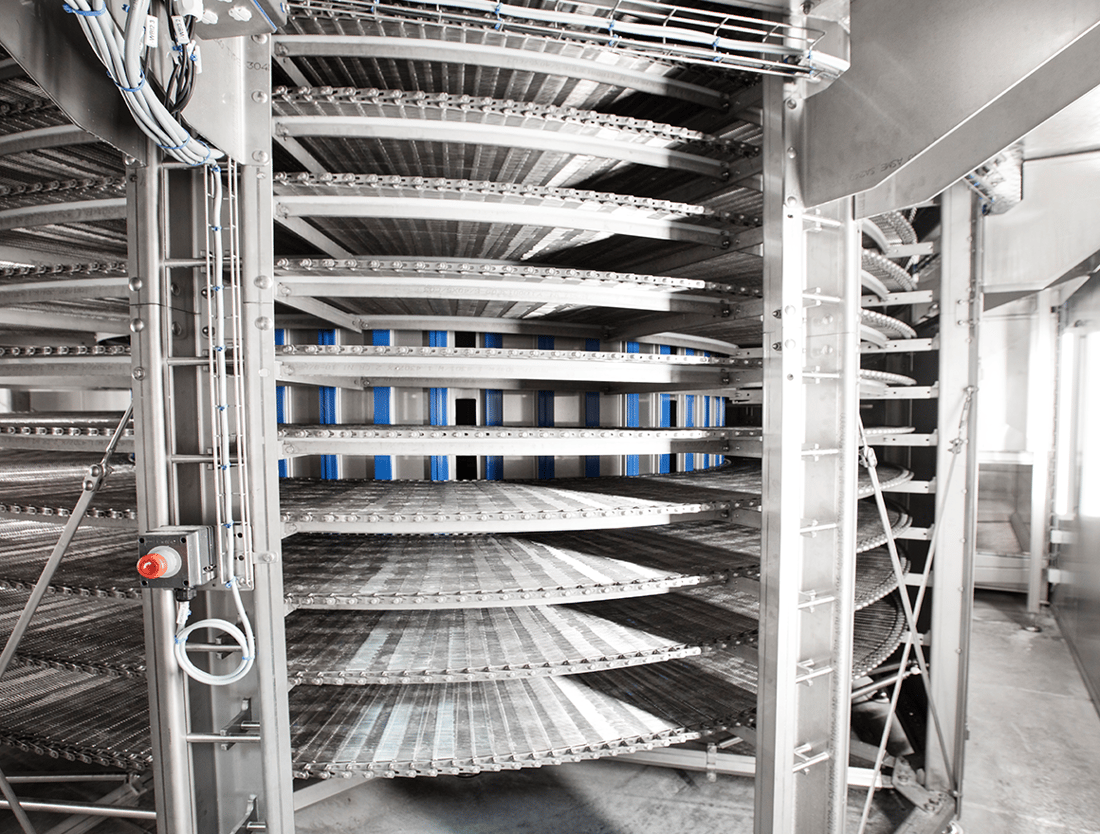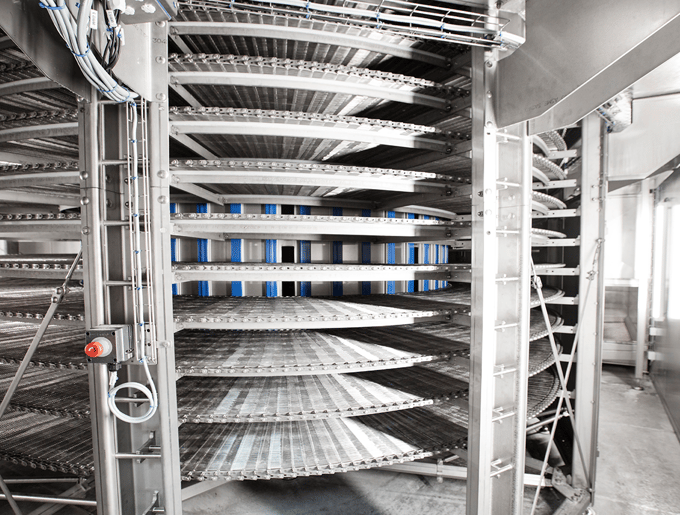In the food industry in general and in bakery in particular, it is essential to aim for optimal freshness of your product at the consumption moment of your customer. Whether you are in catering, bakery or snacks, the aim is to always create the optimal fresh moment for your clients.
For bakery products for example, customers prefer to consume their products as soon as possible after purchase. Yet at the same time, you aim for efficient production.
Contradictory as it may sound, efficiency in the production process can actually help to optimise freshness. The yield of your process can possibly be improved by scaling up, organising longer runs or better preparation.
In this blog, you will be able to read how conditioning solutions can not only optimise the production process, but even improve the quality of your products.
1. Cooling techniques in your production process
Under the right conditioning solutions, freshness at the time of production can be maintained for as long as possible. Quality can be brought to a constant level, eliminating the risk of quality variations in the end product. By combining different optimisation methods in the process, it will make it easier to create that constant quality level by producing more with less personnel, exploring new storage solutions and baking off or conditioning shortly before the moment of consumption.
2. (Blast) freezing
In the industry, freezing products is a more accepted way to optimise production now than a few years ago. Blast freezing products under the right circumstances can add flexibility to the production process, possibly resulting in a higher turnover, as stocks will not easily run out. But there are additional advantages: it will also allow you to always sell the freshest possible product, without any decrease in quality.
Blast freezing methods will allow for products to be kept in stock for a longer period of time. It all depends on the product. Patisserie should remain in a frozen state for as long as possible, where bread is hardly ever frozen as a finished product and will be baked off as close to the consumption moment as possible. There are many different options, dough can be frozen before or after rising, or half-baked.
KOMA experts will be able to advise on the perfect freezing moment and method for your specific product and business.
3. The right storage solutions for your products
The perfect storing solutions are essential for the production process. Stocks can be kept for longer periods, without quality decrease, and constant temperatures will ensure product consistency. The right preparation for storage can make a substantial difference.
For example, the highest quality storage can be achieved by first freezing under a large temperature difference and high air speed until the right value is reached, then to stop freezing and store in a freezer-cell under optimal storage conditions.
4. Recovery
Bakeries need to use the right conditioning methods in order to deliver the perfect product to end customers. The right way of conditioning is to first freeze the product and then condition to prepare for sale.
The amount of water in a product defines the difficulty of conditioning, it determines how something is frozen, but it also affects spoilage. If products are stored for up to 2 days, storage is not necessarily frozen. If it is stored longer, it should be. KOMA can advise customers on optimal defrosting methods.
5. Proofing
The product quality can be optimised with the use of a slow proofer. It makes it easy to prepare the product for the exact time it is needed for further handling. This way you can decide precisely when your product needs to be ready for transport, baking or sale and optimise (oven) capacity. Additionally, slow proofing results in a fixed baking time, which makes planning easier.
6. Internal logistics
Industrial bakers are advised to plan back from the expedition moment. Internal logistics are important, everything starts with expedition: when should products be ready in expedition, either for retail or industrial production. Calculate back from the moment of expedition, the baking capacity determines the supply to the ovens. Storage can be a buffer, ideally refrigeration techniques are used to disconnect the baking process from the production process. This way, you can determine the optimal production process for your product.
Additionally, separating production from baking provides extra flexibility. By dividing these processes, you will have more grip on internal logistic processes and thus increase quality and flexibility. This separation brings the baking as close as possible at the consuming moment.
Lastly, optimising processes is a process in itself. Often, managers know exactly where their bottlenecks are, but conditioning solutions are usually not short term purchases. Generally, there is a reason why purchase is necessary, for example when one element in the production chain breaks down. Still, that is a perfect moment to reconsider existing processes and determine the optimal solutions for your business.
KOMA has extensive expertise in conditioning solutions.
Are you curious to find out how conditioning can improve your business? Get in touch with one of our specialists.



